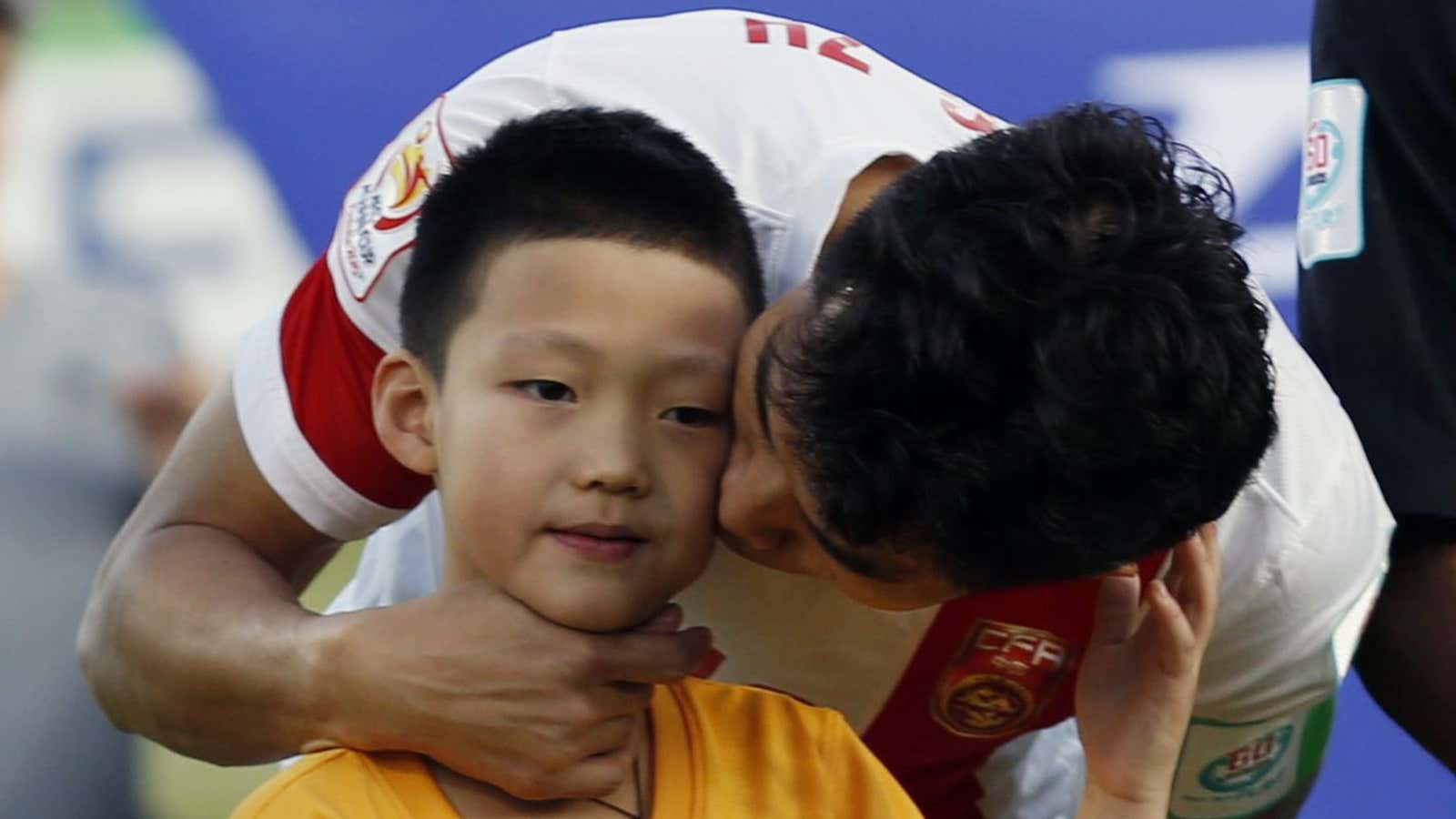At the 2002 World Cup, China’s national soccer team suffered three straight losses at the group stage, giving up nine goals without scoring one of their own. That embarrassing performance is a cherished memory for many fans. It remains the only time their squad has reached the group stage (where the weaker teams tend to get weeded out).
China’s beleaguered squad also looks unlikely to reach the next World Cup, which starts in Russia in June 2018. But maybe, just maybe, the squad will reach the group stage again in about a decade. On Jan. 10, FIFA announced it will expand the number of teams in the World Cup from 32 to 48, starting with the 2026 tournament.
That, says Cai Zhenhua, president of the Chinese Football Association, considerably increases the team’s chances of qualifying for the competition. He hailed the decision (link in Chinese) by the sport’s global governing body. State newswire Xinhua also chimed in, writing in a commentary that the country’s return to the World Cup “will no longer be just a dream.” Retired top striker Li Yi, meanwhile, wrote, “I can’t hold back my ecstasy—can I scream?” on the Twitter-like Weibo (link in Chinese).
Not everyone is so excited. Pessimism and mockery dominated the comment section under a Weibo post (link in Chinese) by the People’s Daily that asked readers about the team’s odds under the new format.
“Even if Tsinghua and Peking expand enrollment, it has nothing to do with me,” one user wrote, comparing the team’s odds of qualifying to an ordinary student’s odds of being accepted at China’s most elite universities. The comment garnered 3,000-plus likes.
Another reader suggested FIFA give two places to the Antarctic football confederation and let China join that fictional league. But even this idea was dismissed by others. “Are you sure the [Chinese] national team can top the penguin national team?” one mocked.
Other fans cringed at the thought of the team missing the tournament even with the change. ”What if China still can’t make it when the time comes? That’s embarrassing,” one wrote on Dongqiudi (link in Chinese), a popular app for soccer news.
Fans have reason to remain skeptical. While China’s pro clubs have made some breakthroughs—thanks in large part to luring international stars with generous paychecks—the national team continues to show little progress. On the day of FIFA’s announcement, the team fell 2-0 to Iceland in a friendly match in the southern Chinese city of Nanning. It currently places 82nd in the FIFA world rankings (better, granted, than its low mark of 108th in 2008).
Currently China lingers at the bottom of its six-member qualifying group for the 2018 World Cup. That’s despite having Marcello Lippi—who coached Italy to a World Cup championship in 2006—as team manager. Indeed the squad earned just one point in the first three games. Of particular concern was a loss to war-torn Syria last October—a defeat that sparked street protests in China.
